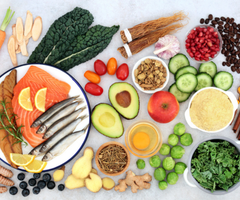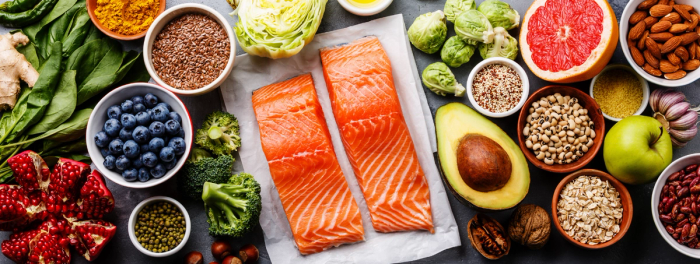question
what types of food should people with arthritis avoid?
When it comes to managing arthritis through diet, there are certain types of food that individuals may want to avoid to help reduce inflammation and alleviate symptoms. Here are some key types of food that people with arthritis should consider limiting or avoiding:
-
Processed Meats: Sausages, cold cut meats like ham and salami are high in saturated fats and preservatives, which can contribute to inflammation in the body.
-
Refined Sugars: Foods containing refined sugars such as soft drinks, cookies, cakes, candies, ice cream, and some breakfast cereals can lead to spikes in blood sugar levels and promote inflammation.
-
Trans Fats: Found in deep-fried foods, fast foods, and commercially baked goods, trans fats are known to increase inflammation and may worsen arthritis symptoms.
-
Processed Snack Foods: Chips, crackers, and other processed snack foods often contain unhealthy fats, high levels of sodium, and artificial additives that can trigger inflammation.
-
Gluten, White Bread, Pasta, and Excessive Carbohydrates: Some individuals with arthritis may find that gluten-containing foods like wheat-based products, white bread, and pasta can exacerbate inflammation. Additionally, consuming too many carbohydrates can lead to weight gain, which puts added stress on joints.
-
Soybean Oil and Vegetable Oil: Oils high in omega-6 fatty acids, such as soybean oil and vegetable oil, can promote inflammation when consumed in excess. It's essential to maintain a balance between omega-3 and omega-6 fatty acids for optimal health.
-
Alcohol in Excessive Quantities: While moderate alcohol consumption may not be harmful, excessive intake can contribute to inflammation and may worsen arthritis symptoms.
By reducing or avoiding these types of foods in your diet, you may be able to manage inflammation and potentially alleviate some of the symptoms associated with arthritis. It's important to remember that individual responses to food can vary, so it may be helpful to keep a food diary and track how different foods affect your arthritis symptoms. Additionally, consulting with a healthcare provider or a dietitian can provide personalised guidance on creating an anti-inflammatory diet plan tailored to your specific needs.
This information is not a substitute for professional medical advice, diagnosis or treatment. Always consult a registered healthcare professional about matters that affect your health. Clara uses artificial intelligence to generate general information for personal educational purposes only, not intended to be a management plan and it may contain errors, inaccuracies or may oversimplify concepts.








